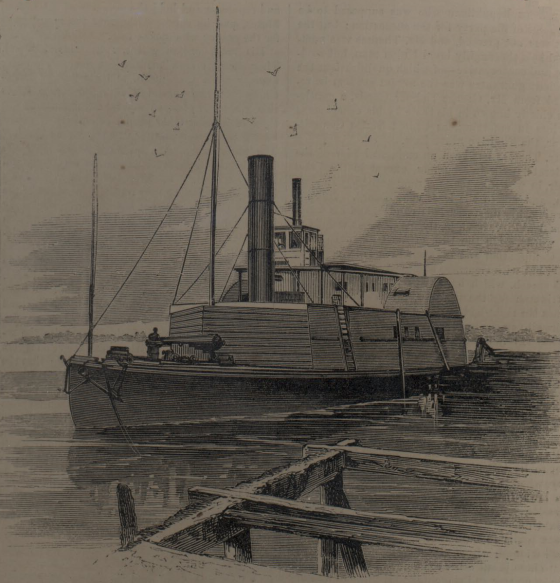The Civil War produced many unsung heroes that largely have been lost to history, and Robert Smalls is one of those heroes.
Born into slavery in Beaufort, S.C. in 1839, Smalls always had a sense of adventure and wanderlust, but his station in life had him working alongside his mother cleaning the mansion of Henry McKee.
When he was 12 years old, McKee allowed Smalls to be hired out, which was common at the time; although he did not get to keep most of his wages, he was happy to be able to enjoy a bit of freedom. Starting off as a dock-hand in Charleston, Smalls eventually secured a job as a pilot on the steamship Planter.
CSS Planter started life as a commercial vessel, but was later converted to a gunboat.
It is likely that Smalls was dockside watching on April 12, 1861 when the opening salvos of the Civil War began as the Confederates fired on Fort Sumter.
At the outbreak of the war, Smalls was recently married, but the law did not recognize slave marriages, and he was hardly allowed to even see his new bride. That is when Smalls began to develop a plan to seek freedom for himself and his family.

Union forces had blockaded the port of Charleston, and Smalls knew that he could use that to his advantage.
When the captain of the Planter invited the free members of the crew for a night of revelry on land, Smalls put his plan into action. The slaves on board, under the command of Smalls, fired up the boilers at around three in the morning, and the Planter slipped out into the harbor.
MORE: Augusta considers action against crime-ridden businesses
Smalls knew exactly what signal flags to fly and when, and he even donned that captain’s livery as the CSS Planter steamed past the unwitting Confederates. Once Smalls’ wife and other family members were picked up, the Confederate flag was removed and the Stars and Bars hoisted as the Planter steamed directly toward the Union blockade.
Had he been caught, Smalls most definitely been hung; he literally risked his neck to navigate himself and 16 others to freedom.
The United States took custody of the Planter and paid Smalls a tidy sum for its capture. Once the ship was re-fitted, Smalls was named captain.
According to the National Park Service, Smalls distinguished himself in battle and was highly respected by his crew for his knowledge of the area’s waterways and his attention to detail.
After the war, Smalls became one of the first victims of the new era of segregation. Long before civil rights icon Rosa Parks was born, Smalls was arrested in Philadelphia for attempting to board a “White” streetcar.
Smalls appealed, and the result was the desegregation of Philadelphia’s streetcars.
That incident would move Smalls to get involved in politics.
In 1868, Smalls was elected to the South Carolina House and later became a state senator, where he became known for his passionate lobbying for the education of the newly freed slaves.

Later, beginning in 1875, according to the Library of Congress, Smalls served five terms in the United States Congress where he was treated as somewhat of a celebrity by his fellow Republicans.
Also, after the war, Smalls returned to his hometown of Beaufort and purchased the very mansion where he was once enslaved at a tax auction after the owner, McKee, had died suddenly and penniless in the aftermath of the war.
Never a man to hold a grudge, Smalls allowed McKee’s widow to continue living in the home along with his family until her death.
…And that is something you may not have known.
Scott Hudson is the Senior Investigative Reporter and Editorial Page Editor for The Augusta Press. Reach him at scott@theaugustapress.com











